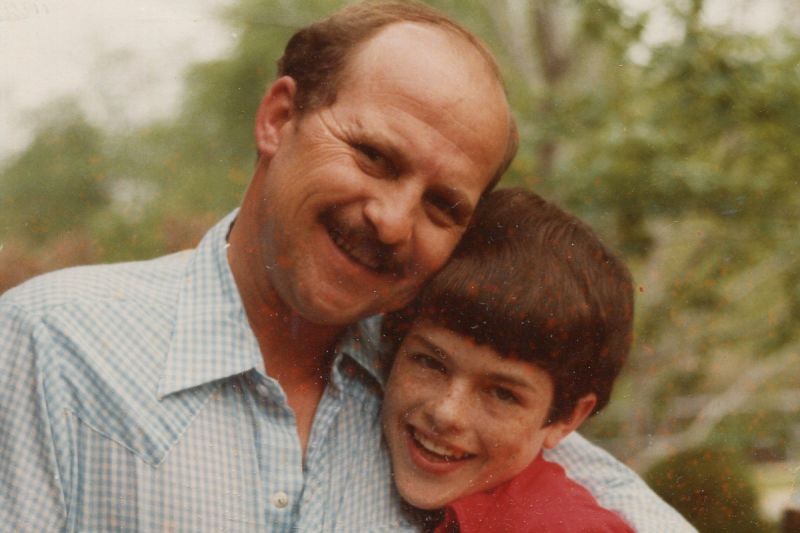5 Steps to Prepare for Adoption after Infertility
Choosing Adoption after Infertility

Infertility is one of the greatest struggles hopeful parents can encounter on their path to starting or growing their family. Exploring alternative family-building methods may not be an easy decision, but many families choose to pursue adoption after infertility.
Adjusting your mentality from wanting your own child biologically to adopting is a big commitment that will take a lot of time and effort. It’s vital for any couple considering adoption after infertility to understand the complex, yet life-changing process ahead of them, which includes:
-
Paperwork
-
Home studies
-
Legal processes
-
More emotional highs and lows
So, if you want to carry out an adoption after infertility, know that this might not always be straightforward. But ultimately, it will be worthwhile. Below is what you need to know before you begin the adoption process.
If you want to speak with an adoption specialist now, you can get free information about infertility support groups and more when you call 1-800-ADOPTION today.
The 5 Steps of Adopting After Infertility
There are many steps that go into adopting after infertility. But, couples must first take the time to work through complicated feelings of grief and loss before they should consider adoption after infertility.
Couples may first decide on other forms of infertility treatments like IVF before they can fully let go of their dreams of having a biologically related child.
They might also consider other options, like surrogacy, before ultimately deciding that adoption is the right choice for them. And, when they do make that decision, they need to be truly excited about the process ahead — it’s not enough to feel like you are “settling” for adoption.
Adoption may not always be right for everyone, and that’s completely okay. But, if you are interested in choosing adoption after infertility, here’s how that decision might look for you:
Step 1: Fully Grieve your Infertility
Even if you ultimately choose to pursue adoption after infertility, you are still experiencing a loss, and it’s one that deserves to be properly grieved. Before making any decisions about how to proceed with your family-building journey, you should first go through the following phases of grief:
Keep in mind that everyone grieves differently, and the grief process isn’t necessarily linear. You might not go through all of these grief stages, and you may not go through them in this order.
If you find yourself struggling with this grief process, you are never alone. You might consider reaching out to a support group or an infertility counselor to help you process these emotions.
Helpful Information
Step 2: Decide you’re More Interested in Experiencing Parenthood than Pregnancy
After you’ve fully grieved your infertility, you’ll start thinking about what was really important to you about conceiving in the first place. Was it to experience a pregnancy? Or, is it more important to you to experience parenthood?
If you are still concerned about not being biologically related to your child, you may not be quite ready to consider adoption as an option yet. But, if you truly want to have a child to love, guide and watch grow up, you may be ready to start adopting after infertility.
Step 3: Get on the Same Page with your Partner about Adoption after Infertility
When it comes to infertility and adoption, you and your partner should be completely on the same page. Not everyone grieves at the same pace or in the same ways.
It’s not fair to refrain from voicing your concern if you aren’t sure you’re fully committed, nor is it fair to push your partner to consider other family-building methods before they are ready.
The two of you are a team, and both of you will need to be in the same headspace to complete your family.
Step 4: Determine Which Kind of Adoption after Infertility you want to Pursue
After you’ve determined that you and your partner are both fully committed to pursuing adoption, there will be many questions you have to discuss and answer together, such as:
-
Do you want to adopt a baby?
-
Do you want to adopt an older child?
-
Do you want to adopt a child with disabilities?
-
Do you want to adopt a child from another country?
Your answers to these questions will help you determine which type of adoption after infertility is best for you to get more information about. The three main forms of adoption hopeful adoptive families engage with are:
-
Domestic Infant Adoption. In a domestic adoption, you and your spouse will adopt a baby from a prospective birth parent within the United States. They will choose their child’s adoptive parents based on the adoptive family profiles that closely resemble their wants for the child. Once a birth parent selects a family, they can maintain an open adoption relationship for the rest of your baby’s life.
-
International Adoption. In an international adoption, you and your spouse will adopt a child from a foreign country. This process varies greatly depending on which country you choose to adopt from.
-
Foster Adoption. In a foster care adoption, you and your spouse will adopt a child who has been legally cleared for adoption within the foster care system. A state judge has already determined the children’s parents are not fit to have responsibility for their child, and their parental rights are taken away. These children are usually older or have one or more disabilities.
Researching these different types of adoption and determining which path makes the most sense for your family before moving forward is crucial. Adoption requirements, costs and processes can vary based on which adoption path you choose.
If you ultimately decide that a domestic infant adoption after infertility is right for you, then American Adoptions offers many helpful services and programs to help you start or grow your family.
Step 5: Connect with an Adoption Professional
An appropriate adoption professional should be your greatest supporter throughout the adoption process. Ensure that they can counsel you through every stage, including discussions about your infertility struggles and how they can help you feel ready for the huge step toward adoption after infertility.
***
To learn more about adopting after infertility — or to begin pursuing your own adoption after infertility — you can contact American Adoptions today at 1-800-ADOPTION.
Disclaimer
Information available through these links is the sole property of the companies and organizations listed therein. American Adoptions provides this information as a courtesy and is in no way responsible for its content or accuracy.

